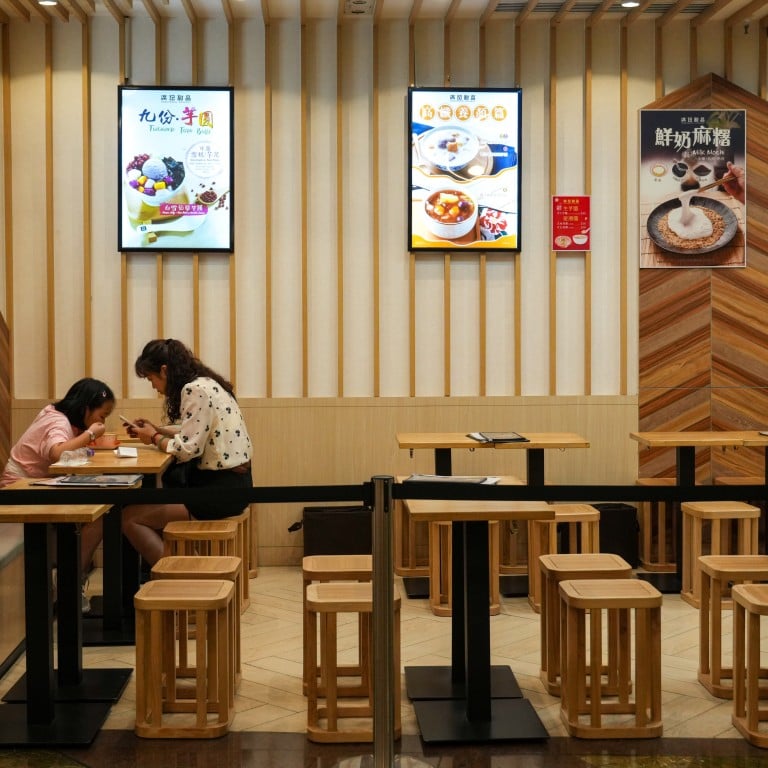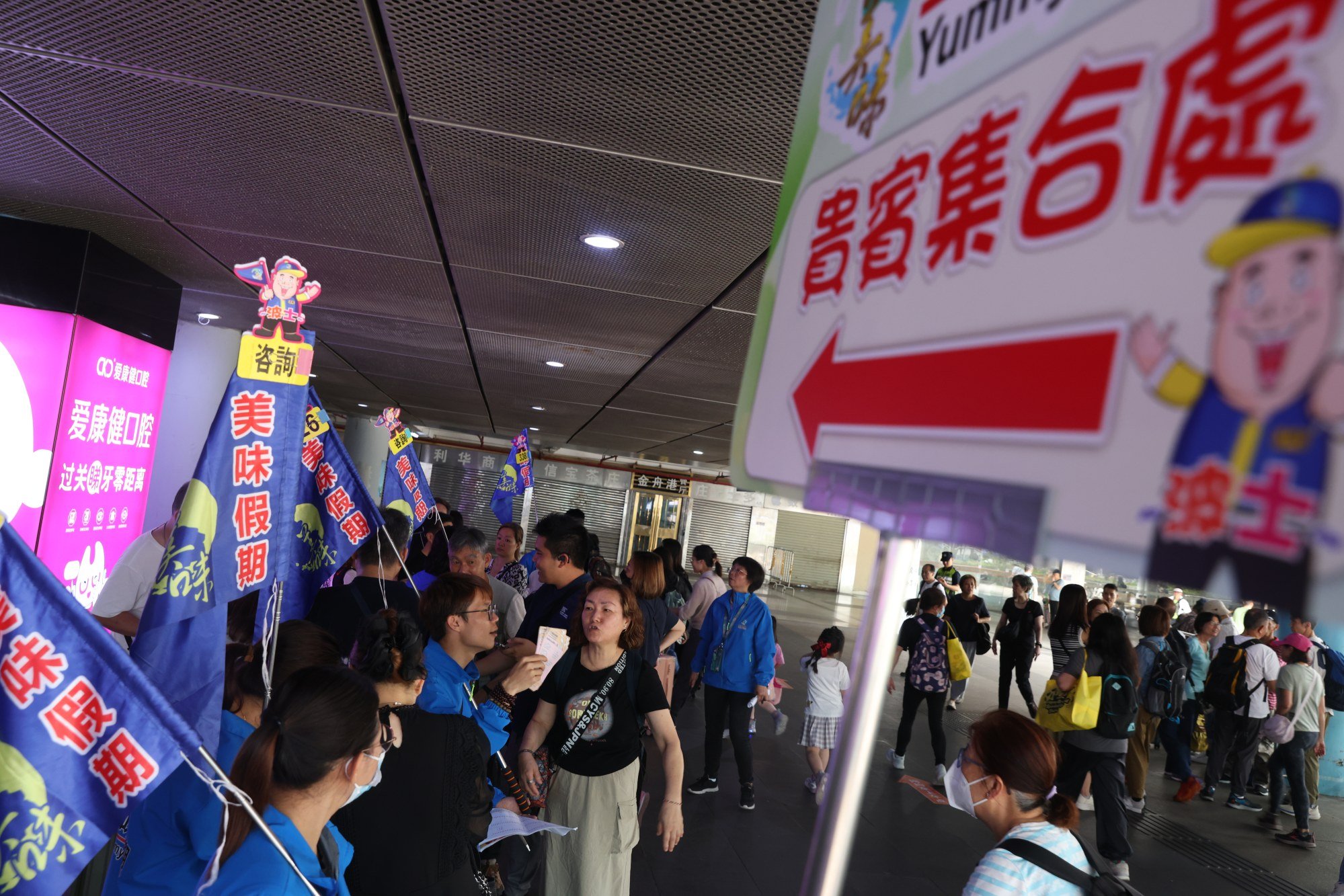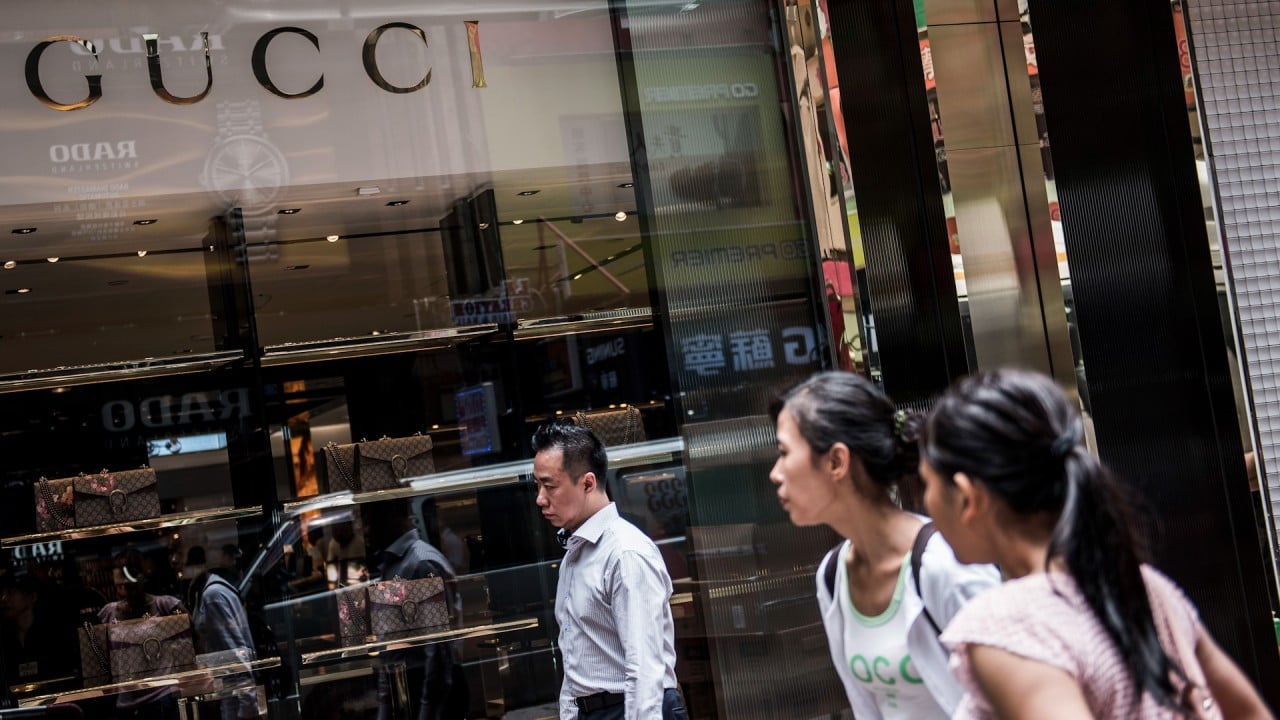
Hong Kong needs outside-the-box thinking to shore up the economy
- Shops and restaurants took a hit over the Easter break, when more than a million people left the city
- Maybe it’s time to make use of Hong Kong’s uniqueness and experience to tap into the mainland market
But while the city turned into a ghost town, the border crossings were crowded as people waited hours to get into and out of Hong Kong.
This situation will only worsen the city’s identity crisis.
Hong Kong has for decades prided itself on being a shopping and dining paradise. But if residents now find the shops and restaurants more appealing over the border in Shenzhen, what is the future for Hong Kong’s economy?
The exodus over the Easter break has only added to fears that Hong Kong’s role as an international financial centre is over, as the stock and property markets remain sluggish, and as multinationals and wealthy mainlanders move their operations and money out of the city.

There has been much discussion among academics, officials and business leaders about whether Hong Kong has lost its edge and how it can try to get it back by maintaining the flow of capital and workers, by having a clean government, independent judiciary, even free internet.
But so far the Hong Kong government has shown little imagination on this front. It also seems to lack an in-depth understanding of the mainland as it tries to redefine the city’s identity.
One example is sticking to the old approach of trying to lure mainland tourists to go on spending sprees in Hong Kong. Many mainlanders now prefer to stay in Shenzhen hotels, and that means they spend less when they travel into Hong Kong on day trips.
Hong Kong malls offer free parking as 541,000 people leave city for Easter break
What about looking at how the city could tap into the mainland market by making use of its unique skills, culture and experience?
That would require some outside-the-box thinking.
For example, what the mainland needs most right now is foreign investment. So how can Hong Kong, with its decades of experience as a financial and trading gateway, benefit from facilitating foreign investment into the mainland?
There is little question that it is not as easy now to attract foreign investors to mainland China as it has been in past decades.
There are many reasons for this, including the country’s uncertain economic outlook, geopolitical rivalries that are driving hardline narratives from both China and the West, as well as the increasing opaqueness of Chinese politics.
Many foreign investors are choosing to wait and watch, even though the size of the Chinese market remains appealing.
This is where Hong Kong could step in with services to help foreign investors to understand the Chinese market and policies better, and even to help them shop for the right deal in China.
But for this to happen, Beijing would have to remove some of the red tape. Local governments tend to compete for foreign investment and allowing a third party to act as the middleman would not happen easily.
At a time of deep suspicion between China and the West, could Hong Kong also become a place for international meetings on investment, technology and even on geopolitical issues, to facilitate cooperation and ease tensions?
Unimpressive earnings threaten sentiment-driven rebound in Hong Kong stocks
The mainland also has huge needs in areas like aged care and mental health. Could Hong Kong – with its strong foundation in social services, counselling, charities and its vibrant civil society – become a training centre and model?
Education is another example. Many mainlanders have studied at Hong Kong’s universities in recent years. So could the city become an education hub – a place where a generation of young people could develop an innovative spirit and an understanding of both East and West?
All of these are just initial thoughts. But in a rapidly changing world, working out how Hong Kong can leverage its uniqueness to help the mainland might be a good place to start, and it would also bring benefits to both sides.


